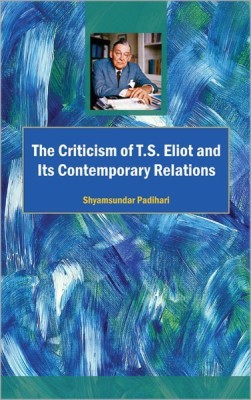The Criticism of T.S. Eliot and its Contemporary Relations(English, Hardcover, Padihari Shyamsundar)
Quick Overview
Product Price Comparison
This study is an attempt to map out the influence of Eliot, particularly The Waste Land, on modern Indian poetry with special reference to Oriya, Bengali and Assamese poetry. T.S. Eliot influenced and actively helped two generations of English poets and writers as a director of a publishing firm. He was the first to throw open the windows of English literature to fresh breezes from Europe and to eastern mysticism and through his writings, gave a new assessment of the medieval poets and their mysticism. His poem ŌĆ£The Love Song of J. Alfred PrufrockŌĆØ provides the starting point of the modern poetic revolution. The Waste Land, published in the year 1922, is an authentic statement of the post- war sense of depression and futility. Critics said it was a fragmented view of a shattered world, through pieces of a broken mirror, which reflects the starvation, sterility, frustration and complexity of the modern civilization with its spiritual barrenness. Eliot has portrayed the spiritual sterility of contemporary civilization as a piece of waste land, where nothing can grow, and the inhabitants of this barren land wait for the rain, which never comes. In this degenerating world of the waste land, there can be no love, but only perversions of it. It is not too difficult to speculate the reasons for such a pessimistic and negative attitude on the part of Eliot.


